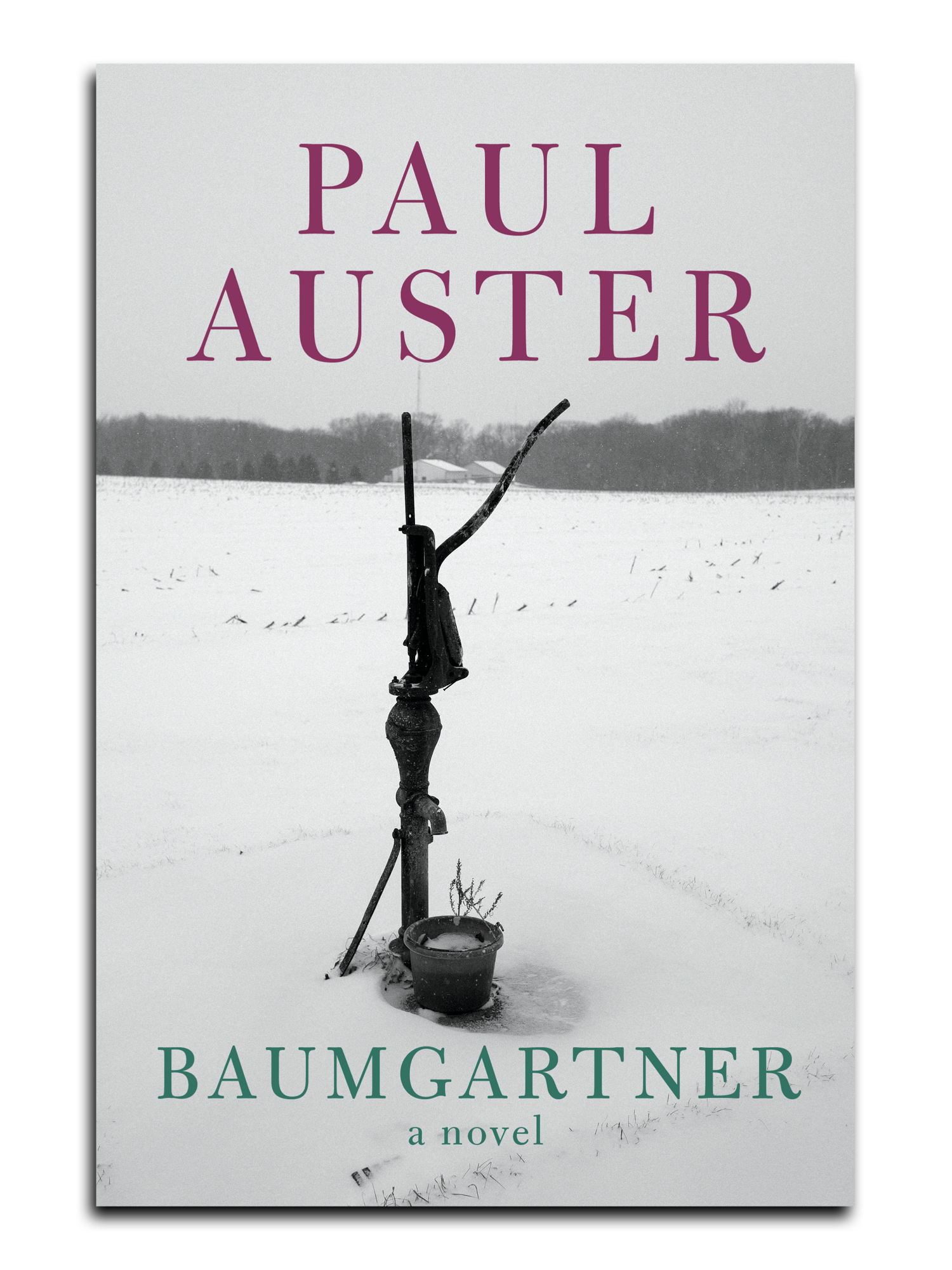Baumgartner by Paul Auster
The reader is introduced to Sy Baumgartner, aged 71 years, through a torrent of happenings in flowing sentences that feel very much like a hyperactive mind trying hard and failing with sequencing and multi-tasking. A downfall often of a creative mind, but also one preoccupied with lived-in grief. Baumgartner is a noted author, a respected philosophy professor, and a lost widower who has left his study in search of a book while remembering to call his sister only to get interrupted by the phone when the meter reader calls to apologize for being late to an appointment time that Baumgartner doesn't remember making only to discover he has scorched a pot of water from having left the burner on.
His day continues with this same forging ahead at a sprinter's pace, as the confluence of tiny little events, that could've gone one way or the other, unfold and allow a continuous stream of Baumgartner both looking to the past and looking to the future. It is the present in which he is stuck, stagnant, and adrift. Nine years earlier, his wife Anna died in a tragic swimming accident, and Baumgartner has remained in this holding pattern of life, orchestrated without purpose by his grief and subsequent loneliness.
The rest of the novel is made up of stops along the way as Baumgartner continues to learn to live without Anna while honoring her memory and keeping her connected to him, meanwhile trying to wake himself up and carry on moving forward. In the continued excavation of memory, stories, and minutiae, Auster gives us pieces of Anna through her written, unpublished work. Baumgartner collects some of her poetry and gets that published in what is described as "a monument of singing pages that will overwhelm the silence of Anna's grave," but it's through her brief passages of memoir, and Baumgartner's own ever-flowing recollections, that we get to know Anna a bit more.
The depth of tenderness cannot be overstated in this slim novel, but Auster also injects his usual playful bits of humor, both directly in the story and indirectly — straight from his proverbial pen. One of the elements I found rich with wit were the constant pelting of dates and anchors of time that are otherwise floating in the air seemingly randomly inserted into a passage and truly otherwise meaningless.
"It has been four days since he wrote the last sentence of his book. Immediately after that, he printed out a copy of the two-hundred-and-sixty-one-page manuscript and put it in a drawer of his desk, telling himself not to look at it again for another month or six weeks, that is not until the middle or the end of November. Then, two days after that (October 17, 2019), which was just two days ago, something unexpected happened, and on the strength of that something, a buoyant, newly inspired Baumgartner has rolled up his sleeves and plunged into the work of meeting the challenge it presents."
Baumgartner is a continuation of what is seemingly Paul Auster's life's work of playing with concepts, experimenting with ideas, and exploring the what-if moments, the in between pauses, and the split-second decisions that veer a path in a different direction. In 4321, something I consider a masterpiece in and of itself, Auster channels this inventiveness into creating four different versions of the same character, all playing out in different ways so that the little redirections are evident. In Oracle Night, Auster has written himself as a writer who then writes himself into a novel as a writer, again so that he can carry on exploring himself (most likely) and the psyche of the way authors create their stories and characters, and the impact of life-altering events. These are continuing themes and there is often so much of Auster in his characters — who are often writers themselves. Archie Ferguson in 4321 was only something of an exception because while one iteration was a writer another was interested in cinema, and so on. Still, no true exception there, especially since they begin in the places and with the ways in which Auster also begins. New Jersey. Immigrant grandparents. Widowed mothers. Effervescent lovers. And Baumgartner is solidly in this realm.
While that may seem that Auster only travels in one lane, that would be such an oversimplified and wrong-footed interpretation that the beauty of his words would be missed. His tendency for meandering sentences and run-on ideas that feel like digitized beams of light that must be chased or followed is in full force here and I loved it.
I received this book for free from the publisher via NetGalley in exchange for an honest review. This affected neither my opinion of the book nor the content of my review.

